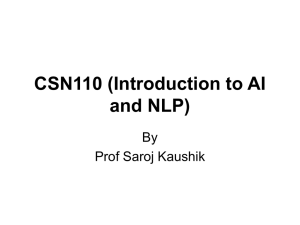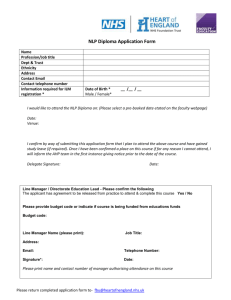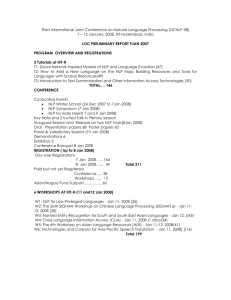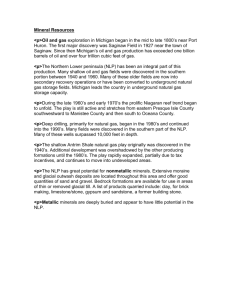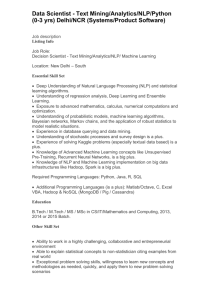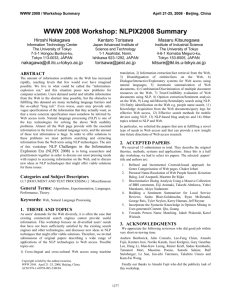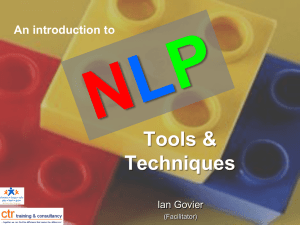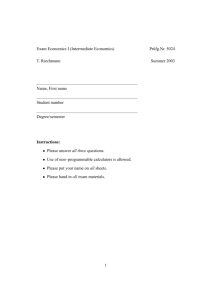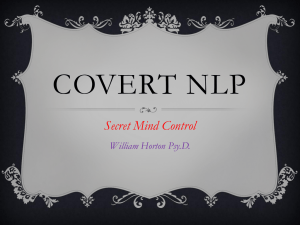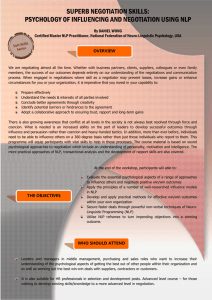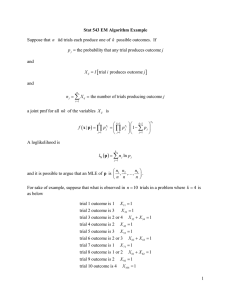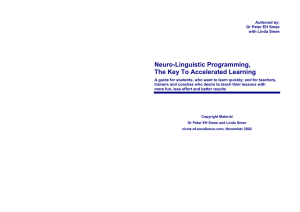The 2016 NLP Practitioner Programme Syllabus The building blocks
advertisement
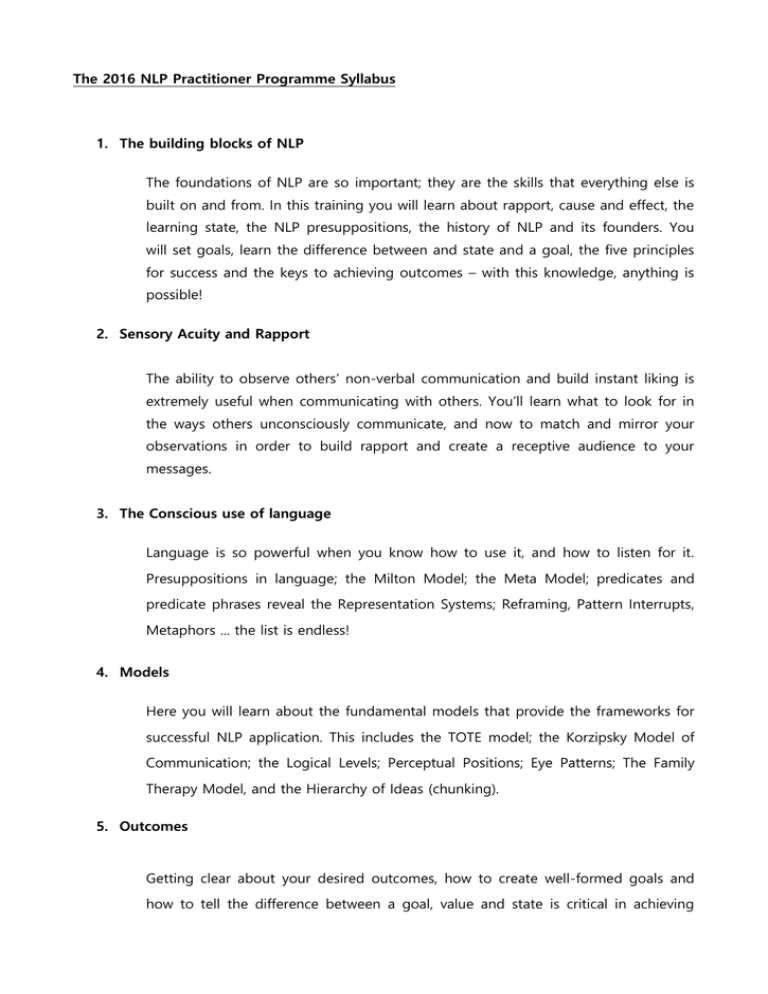
The 2016 NLP Practitioner Programme Syllabus 1. The building blocks of NLP The foundations of NLP are so important; they are the skills that everything else is built on and from. In this training you will learn about rapport, cause and effect, the learning state, the NLP presuppositions, the history of NLP and its founders. You will set goals, learn the difference between and state and a goal, the five principles for success and the keys to achieving outcomes – with this knowledge, anything is possible! 2. Sensory Acuity and Rapport The ability to observe others’ non-verbal communication and build instant liking is extremely useful when communicating with others. You’ll learn what to look for in the ways others unconsciously communicate, and now to match and mirror your observations in order to build rapport and create a receptive audience to your messages. 3. The Conscious use of language Language is so powerful when you know how to use it, and how to listen for it. Presuppositions in language; the Milton Model; the Meta Model; predicates and predicate phrases reveal the Representation Systems; Reframing, Pattern Interrupts, Metaphors ... the list is endless! 4. Models Here you will learn about the fundamental models that provide the frameworks for successful NLP application. This includes the TOTE model; the Korzipsky Model of Communication; the Logical Levels; Perceptual Positions; Eye Patterns; The Family Therapy Model, and the Hierarchy of Ideas (chunking). 5. Outcomes Getting clear about your desired outcomes, how to create well-formed goals and how to tell the difference between a goal, value and state is critical in achieving excellence. We cover the 5 Priniciples of Success, Keys to Achievable Outcomes, SMART Goals and Wellformedness Conditions. 6. Anchoring You’ll love learning how to use the stimulus-response abilities of the human neurology - discover, elicit and utilise anchors. Powerful techniques include resource anchoring, The Ring of Power (aka the Circle of Excellence), Collapsing Anchors, Chaining Anchors - tools of change in simple and effective ways! 7. Submodalities Submodalities are the finer details of our main modalities (senses) and becoming aware of how they play a key role in determining how we think and feel about the world around us. This training includes key skills such as Elicitation, Contrastive Analysis, Mapping Across; Like to Dislike; Belief Change, and Swish patterns. 8. Strategies Everything we do is based on a strategy. Learn how we all function through the strategies we’ve created, how to elicit these strategies and understand the foundations of how to design a well-formed strategy. This section includes Buying, Motivational, Spelling and Love Strategies as well as specific techniques such as The Disney Strategy and Bateson Strategy. 9. Parts integration Create wholeness where there was once division. We will cover how parts form and how to work with them. The technique resolves inner conflict and promotes a greater sense of wholeness within the self. 10. Time Line Therapy™ Get ready to wave your magic wand and wield the power of Time Line Therapy™ as a creator of change! Learn the prime directives of the unconscious mind; how to elicit the time line and how to change it; whether you are ‘in time’ or ‘through time’; remove negative emotions and limiting beliefs; and Create Your Future goalsetting. 11. Hypnosis Learn the fundamentals of eliciting trace states, the history of hypnosis, Eriksonian and Elman styles of hypnosis and how to treat specific issues such as smoking, weight loss, bad habits, performance and more. 12. The Mainspring Method Level 1 This is the exciting new modality developed by Miriam Henke through her research, practice and personal experience in the area of mind-body medicine. This is the first level introduction to utilising the mind-body connection to enhance wellbeing, promote self-healing of mental and physical illness, and work with others. 13. NLP Applications in Business NLP is used very effectively in workplaces, corporations, boardrooms and in sales. We will cover running effective meetings, negotiation techniques, group rapport, the 5 Step Sales Process, the use of strategies, and the integration of the skills learned from the sections on Representation Systems, Eye Patterns, Rapport and more in the context in business. 14. NLP Applications in Therapy, Education and Coaching During the training we will explore how NLP can be used in specific contexts. Throughout the training we focus on how to work one-on-one with a client as well as how to use the tools with children, families and communities.
